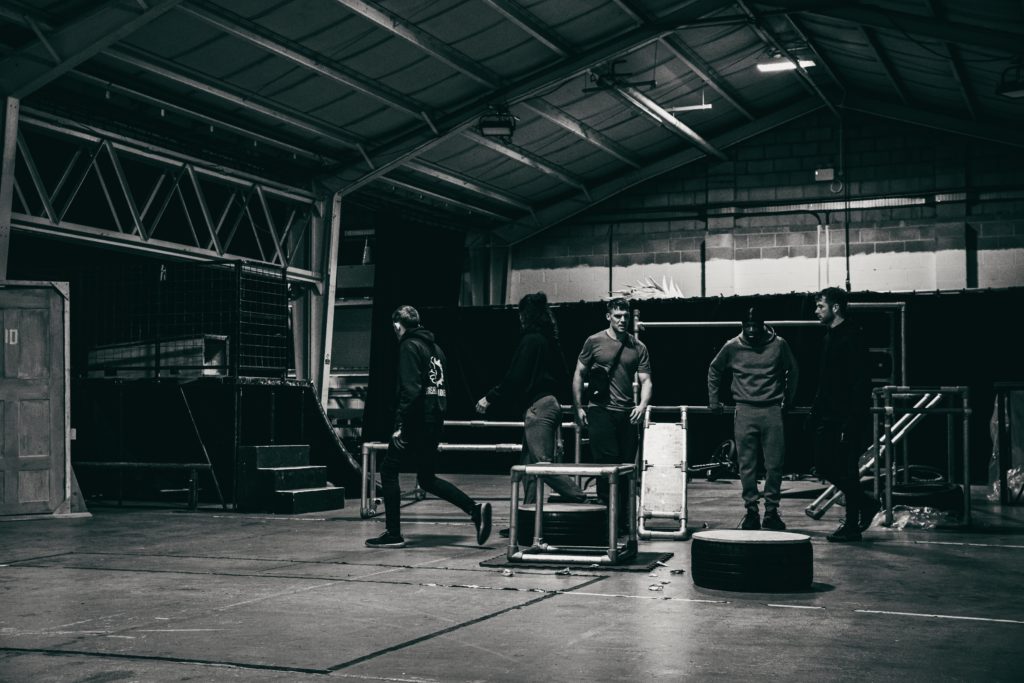Research & development (R&D) phases are always a wonderful mix of excitement, stress and creativity. We just finished an amazing 2-week period at 101 Outdoor Arts in Newbury for our new show CODE about county lines, here’s what we learnt in the process!
1 – Depth comes from research
All Justice In Motion shows are grounded in fact and reality through extensive research, and CODE was no different.
From reading books, monitoring the news, combing case studies and watching films, to attending conferences, working with young people and simply having lots of conversations, we gained a rich understanding of the topic. We even learned that some members of the team had direct experience of knife crime, gang culture, and parents in prison, and they were able to share their perspectives.
To build on this, in the R&D we had Jason Farrell from Sky News and James Ottley from Children Heard and Seen come and speak to the team about their experience and the work they do. This sparked some amazing discussions and helped us to understand the topic from various angles – giving a richer final product.
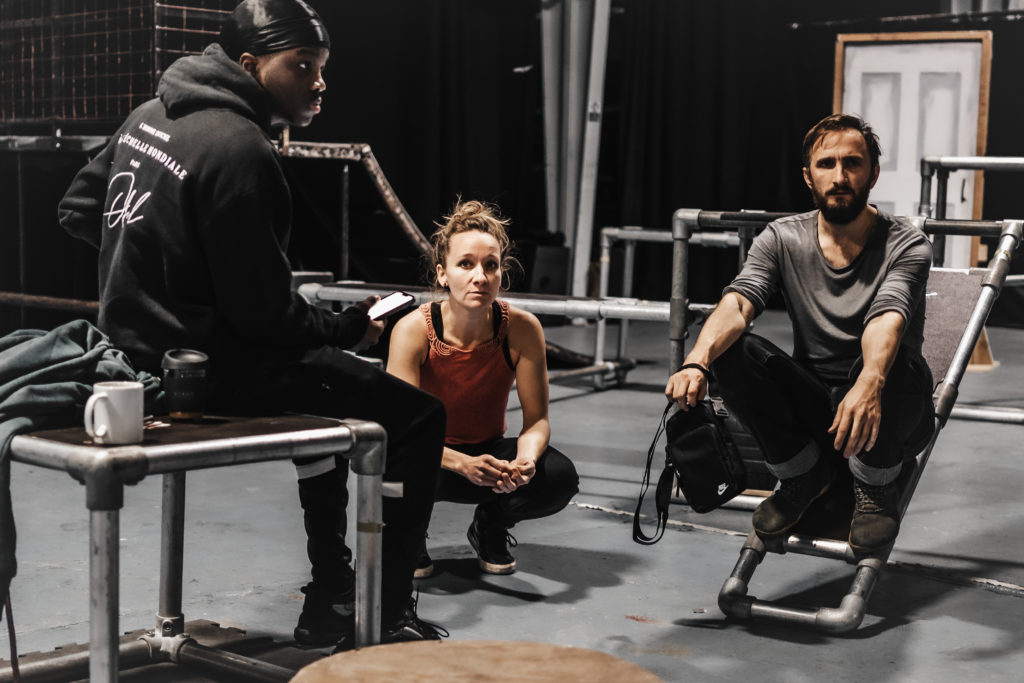
2 – How much can be done in 2 weeks
In just 2 weeks we managed to go from a mere concept to an impressive 35 minute show featuring bikes, parkour, live rap, a huge skate ramp / scaffolding set and a tonne of props. The key? Having a great team on board, good leadership that came with a plan, and a sense of urgency meant we hit the ground running and were able to make make make from day one.
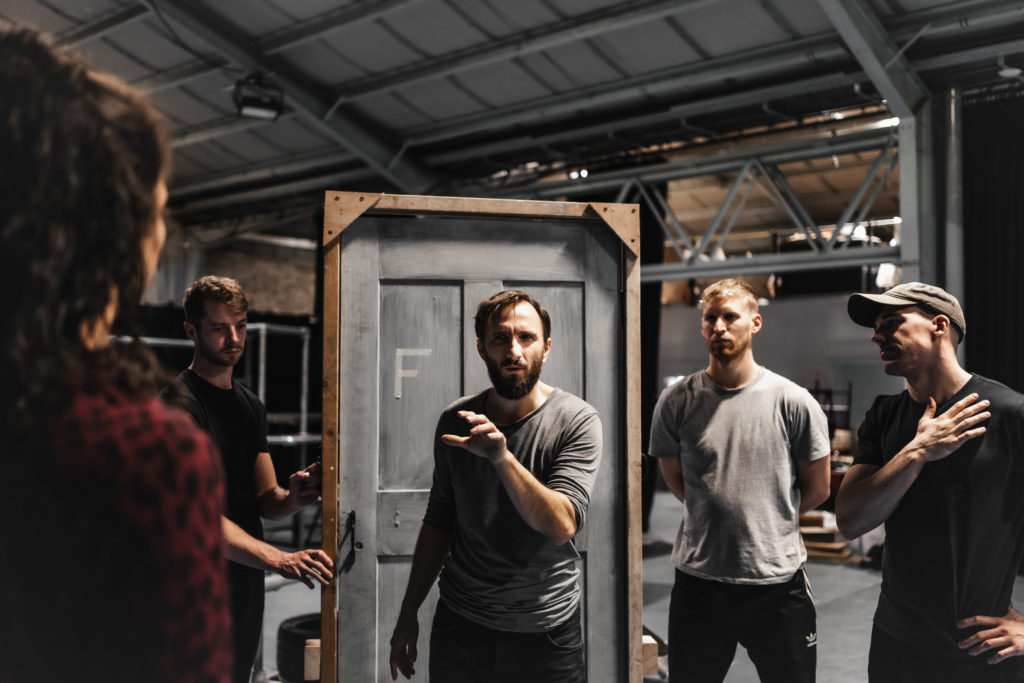
3 – Think big and broad, try lots!
At the R&D stage you can afford to be bold and get all your ideas out in the open. We played with all sorts – ink, powders, fake knives, doors, plastic sheets – you name it.
Testing things out we quickly learned what works and what is more challenging on stage. Then we could get down to more specifics. For example, we love the imagery of plastic sheets in the show – but at the rate we were tearing through it – we need a more environmental solution!
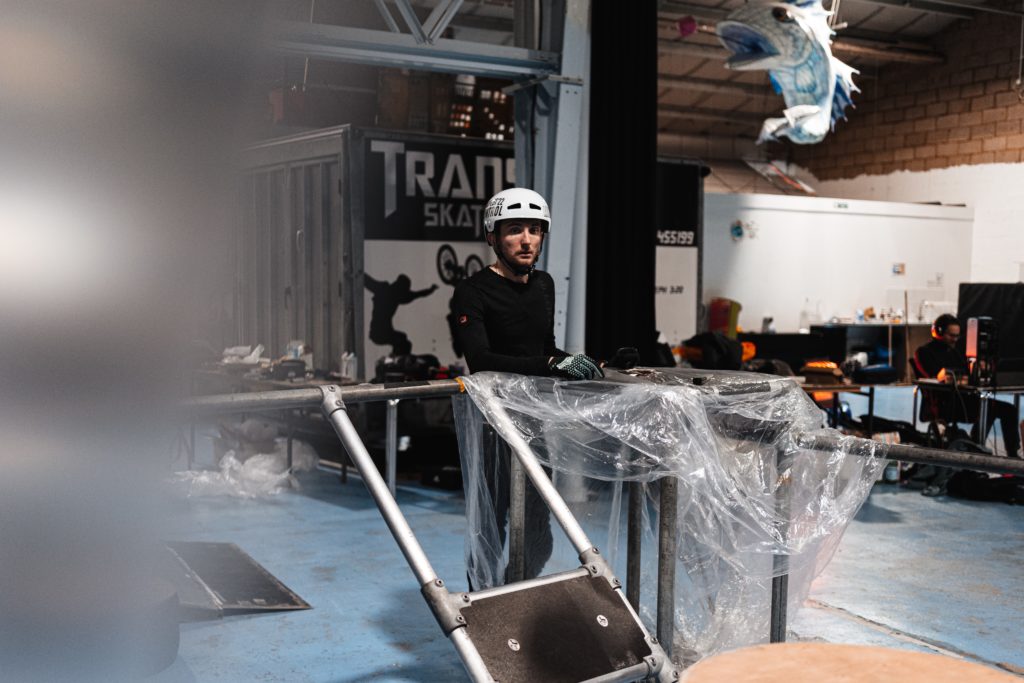
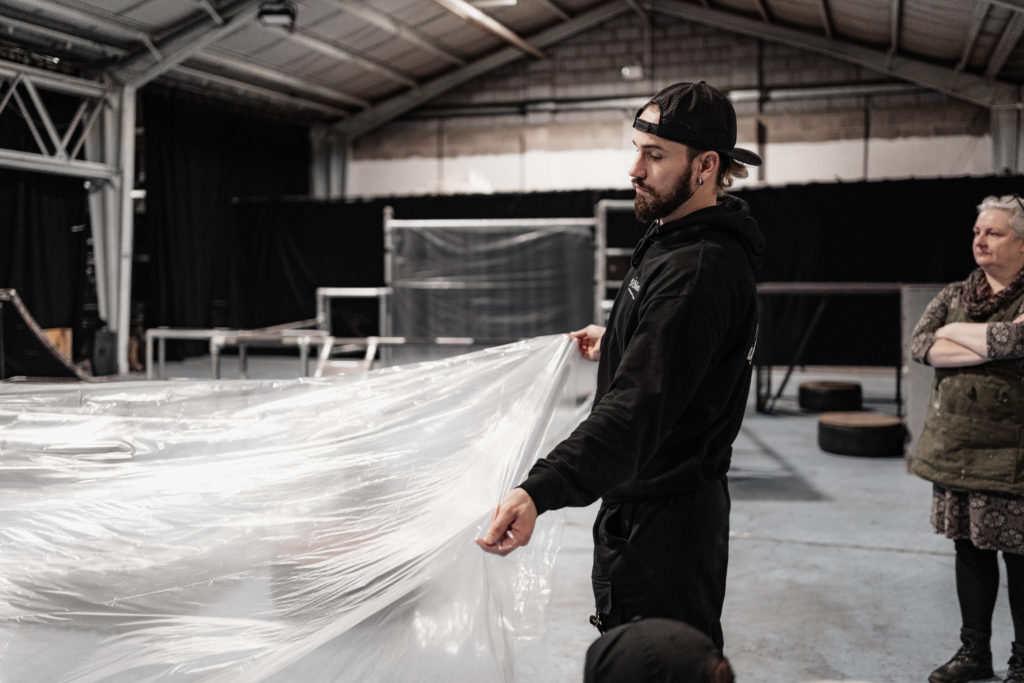
4 – Collaboration is key
Along with trying many new ideas, a huge wealth of creative stimulus came from collaborating with new artists and practitioners, particularly those working in new mediums.
This is the first time Justice in Motion has worked with trials bikes and live rap music, and bringing those disciplines into the rehearsal space with all the new possibilities they brought with them was simply electric.
Mixing these new artforms in with theatre, dance and parkour helped create a fresh palette for the show, making it unlike anything we’ve done before – and allowing everyone in the team to learn something new!
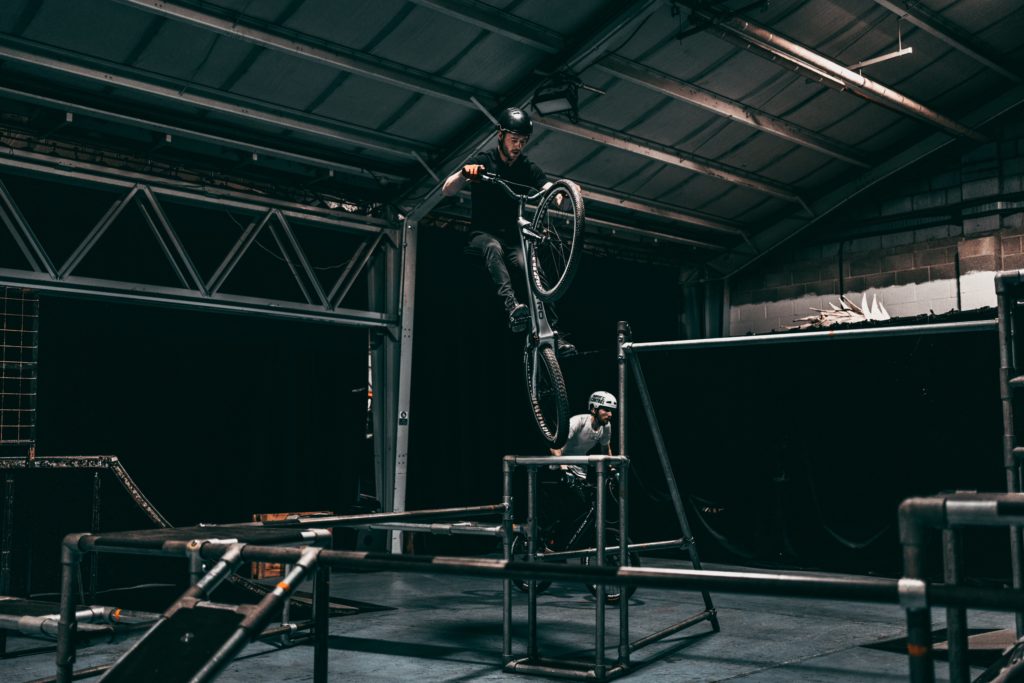
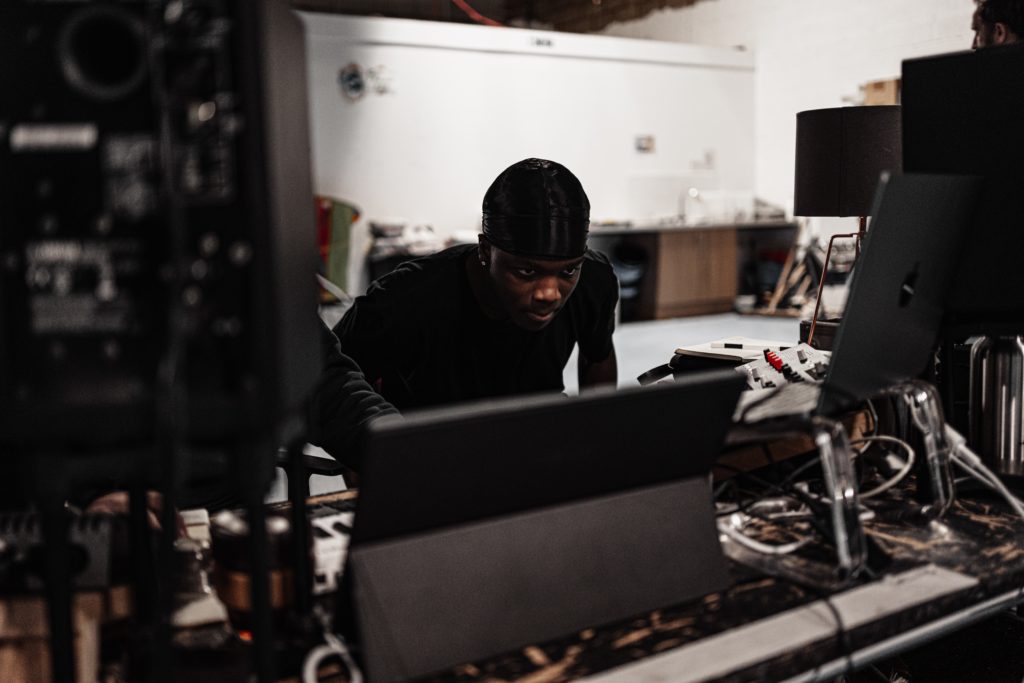
5 – The importance of food and play
Food and play. Two things that are integral to Justice in Motion. Something we’ve found time and time over the years is how important these are in bringing people together and providing some much needed lightness to counterbalance the darkness of the subject matter we explore.
We are blessed to have an amazing chef called Lou who cooks us epic lunches and dinners. Meal times are time for conversation, jokes, and rest, and a real sense of community and family grows within the team.
From this place of community, play naturally emerges at any given opportunity. A key thing we learnt this year was that 101 Outdoor Arts is a great place to play hide and seek at night!
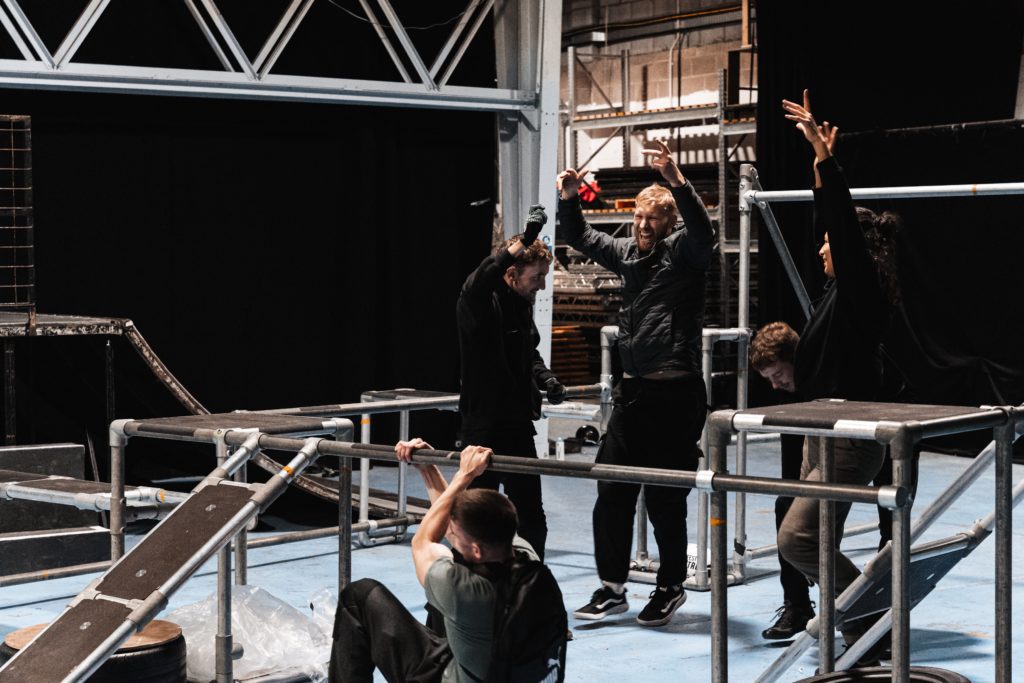
6 – What our purpose might be
As a company we want our theatre to make a real impact, to move people and to inspire change in society. And so the purpose of CODE was a constant question. What did we want to make audiences feel? What did we want to leave them with? What would we hope the show would achieve?
To get this right, there are many factors at play. A big one for us was the tone of the show – to make sure it’s close enough to the harsh reality, yet still feasible for outdoor audiences that will likely include families. This can be difficult when showing things like knife violence and drug trafficking. The challenge for us was to show them in a way that conveys meaning without actually showing them.
We also talked a lot about what potential solutions might be for county lines, including drawing on the expertise of our guest speakers.
Government funding is clearly important. Austerity and cuts to services are leaving more and more young people vulnerable, while the rising cost of living is driving more people into needing to make money quickly – which drives exploitation. We need support to tackle poverty and a particular focus on youth services.
Youth services can provide targeted therapy and support, as well as role models and mentors to young people that often lack that in single-parent homes or with parents in prison. They can also provide opportunities to learn new skills which can both be a diversion and distraction from gang culture, and lead to job opportunities – a key factor in escaping falling into crime.
We hope that seeing CODE might inspire audiences to contribute to these solutions, whether it’s by how they vote, causes they support, or direct action they take.
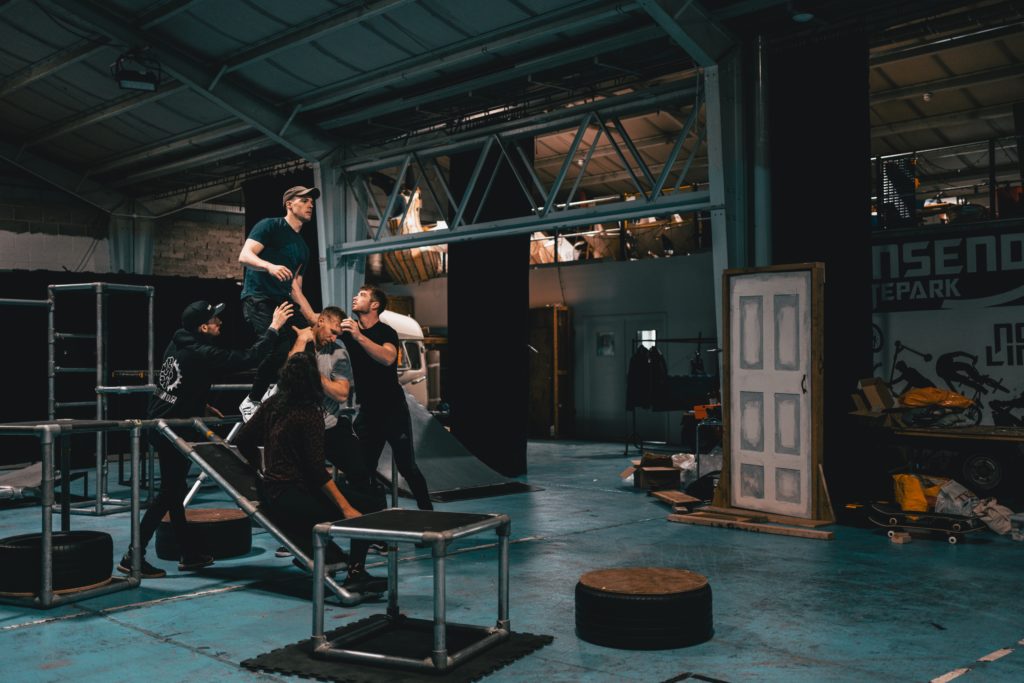
7 – What the future holds
So we made a new show and answered many of the questions we had, while creating a tonne of new questions! There are a few big things that need to happen before the show is ready to tour.
Firstly, we’ll work with set designer Celia Perkins to create an original set for the show – a set that needs to hold the many worlds of the story we’ve created, plus trials bike, parkour, skateboarding and rap – but that is also easily tourable in a van…a fun challenge!
Secondly, we’ll finesse the story. It’s so important that the story is authentic, clear to follow and has the best impact on audiences, so we’ll keep making tweaks and adjustments until it feels right.
Lastly, we need funding! As always in the world of the arts, money is tight and a tonne of work goes into securing donations and funding to get the show on the road. So wish us luck, and if you’re feeling generous perhaps leave us a donation
We can’t wait to see what this show becomes and what it achieves.
